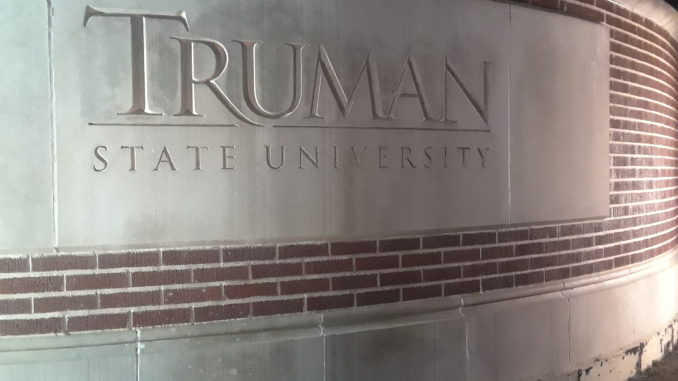
Extreme weather since the start of the year has forced departments around Truman State University to alter plans and work wisely.
The University has closed two times in the past few weeks and has had multiple delayed starts as a result of unusual weather and consideration of community safety.
University President Sue Thomas said this year the University has closed more frequently because the weather this winter is more dangerous than usual.
Thomas said the process of deciding to delay start times or close the University involves careful planning and input from the Department of Public Safety, Physical Plant, MoDOT, Kirksville city officials and others.
The times of delayed starts are decided based on faculty and staff shift changes, and Thomas said the University does not prioritize academics over safety.
“Those who have classes on Wednesday mornings have had a real challenge because that’s when the weather is coming in,” Thomas said. “It really comes down to who is impacted by, in these cases, the weather events that we’ve had recently.”
Thomas said if students feel faculty are not willing to work with them to ensure they feel safe going to class, they should take concerns to the department chair, dean or provost.
Thomas also said Truman never fully closes because various staff, such as members of Information Technology Services, Sodexo employees, Physical Plant workers and others, are deemed essential.
“It’s really important for every member of our community to make an individual judgment about their safety,” Thomas said. “We may have things cleared on campus, but things may not be as clear off campus or if you live outside of Kirksville.”
Physical Plant director Sam Guth said his grounds crew team has been keeping up, even with the large amount of snow the campus has seen.
Guth said his team partially consists of 6-8 employees who have different parts of campus to take care of. For light snow, they brush the snow off the sidewalks with John Deere mowers and attach a plow to the front for heavier snow. He then sends out other men on foot with ice scrapers and shovels to clean where the machines could not reach.
“The main challenge this year has been the cold temperatures,” Guth said. “Snow and ice removal all depends on the temperatures. The freeze and refreeze are our biggest problems. Every morning we go out and see what sidewalks have refrozen.”
The team tries to clear sidewalks around the dorms first, then popular areas like Pickler Memorial Library and the Student Union Building, and finally pathways to classes, Guth said.
Guth said the brick can be a unique challenge to deal with, as it is less porous than cement, stays colder longer and doesn’t benefit as much from salt use.
As for parking lots, Guth said they work to clear commuter and staff parking lots first, then they do what they can to clear residence lots. Guth said clearing residence lots is a challenge because they are never completely empty.
“The challenge this year was the constant barrage,” Guth said. “We really have not had a break till this past weekend when the snow finally melted. We are not out of practice, but we are stretched to our limits right now.”
Guth said his team has been working overtime to clear the snow, even getting to work at 4 a.m. to clear it before 7 a.m. classes begin.
Guth recommended students be careful and patient with the grounds crew.
“Safety is our number one priority — the students’ safety, our campus safety, the staff and then our employees’ safety,” Guth said.
Residence Life interim director William Nelsen said the residence halls have not been abnormally affected by the snow or low temperatures. However, Res Life stepped in when the University canceled Wednesday classes. Nelsen said the Res Life team was prepared to do what it needed to support residents, such as hosting community-building events.
“The University closure turned into an opportunity to engage in self-care,” Nelsen said. “It was a fun way to put academics to the side for a short period of time and engage with the community.”
